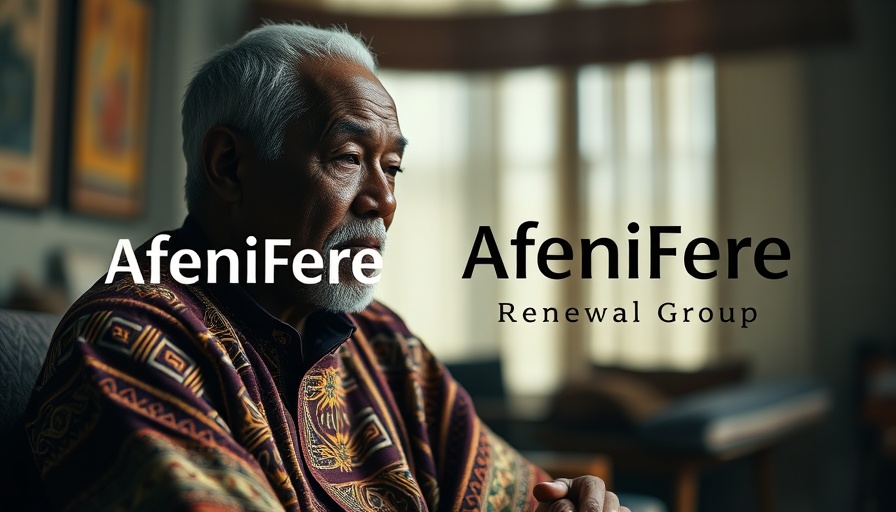
Amidst Criticism, Nigeria's Presidency Calls for Constructive Solutions
The recent dialogue surrounding President Bolatinu's administration highlights a pivotal moment in Nigerian politics, where constructive criticism and alternative policy solutions are not merely encouraged but demanded. The presidency has urged opposition parties to move beyond surface-level critique, emphasizing that laying out feasible alternatives is essential to combat the daunting economic challenges facing the nation. This invitation to engage productively with the administration raises questions about the nature of opposition in a democratic society.
In 'Presidency Challenges Opposition as Afenifere Slams Tinubu's Policies', the discussion dives into the dynamics between governance and criticism, exploring key insights that sparked deeper analysis on our end.
Understanding the Role of Opposition: A Democratic Imperative
In any vibrant democracy, the opposition plays a vital role in holding the ruling government accountable. It is their responsibility to challenge the status quo, ensure transparency in governance, and provide constructive feedback on policies. The conversations sparked by the presidency’s recent statements suggest a deeper underlying tension—instead of merely criticizing, should the opposition also craft practical alternatives? The reality of political discourse in Nigeria, as noted by several commentators, points to the necessity of vigorous debate. This ensures that citizens’ voices reflect not only grievances but also suggestions for improvement.
The Current Economic Climate: Understanding the Critique
Currently, Nigeria's economy is facing significant challenges, including soaring inflation and escalating public debt, with criticisms pointing out that government policies may have inadvertently worsened the situation. The response from the pan-Yoruba sociopolitical group, Afenifere, encapsulates the sentiments of many Nigerians who feel that the government's approach has failed to address their immediate concerns. Critics argue that while the administration touts fiscal reforms and other achievements, the tangible benefits of such policies remain elusive for everyday citizens.
Subsidy Removal: A Double-Edged Sword
A contentious issue among Nigerians today revolves around the removal of fuel subsidies—a policy that was implemented with the expectation of improving fiscal health, yet has led to widespread discontent due to increased living costs. As the presidency noted, there were expectations of reduced government expenditure and enhanced economic stability following this reform. However, questions arise regarding the effectiveness of this strategy. If the government fails to ensure that the benefits of subsidy removal translate into improved public welfare, it risks alienating its citizens, who are left grappling with the repercussions.
Debt as a Tool for Progress: Managing Borrowing Wisely
The administration's current borrowing practices have also come under scrutiny. While there might be valid arguments for borrowing responsibly, especially to fund critical infrastructure projects, the perception remains that funds are often misallocated. Critics argue that debt should not be used to cover operational deficits but should focus on investment that yields growth and improves living standards. The discourse around borrowing—its purpose and effectiveness—serves to underscore the need for proper governance and active engagement from decision-makers to ensure that public trust is maintained.
Bridging the Gap: Addressing Citizens’ Concerns
As this ongoing debate unfolds, it is essential for the government to actively listen to public input and adjust policies accordingly. The stark contrast between the administration’s self-reported achievements and the lived reality of ordinary Nigerians presents an opportunity for frank discussions about governance strategies. Listening to voices across the spectrum—especially those who express dissatisfaction—will be crucial for establishing a coherent roadmap toward recovery and growth.
This dichotomy—a government claiming progress while significant portions of the populace continue to express dismay—underscores the importance of dialogue. By valuing what Nigerians want and adjusting its strategies to meet those expectations, the administration can shift perceptions and build a foundation of trust and collaboration moving forward.
A Call to Action: Engaging in Dialogue for Better Governance
So, how can Nigerians engage more effectively in this critical discourse on public policy? Advocacy, whether through civil society groups or local governance forums, presents a pathway for citizens to amplify their voices. The call for an enhanced democratic engagement is loud and clear; thus, it is crucial for all stakeholders—government, opposition, and citizens alike—to unite in finding solutions that benefit the nation as a whole.
 Add Row
Add Row  Add
Add 


 Add Row
Add Row  Add
Add 

Write A Comment